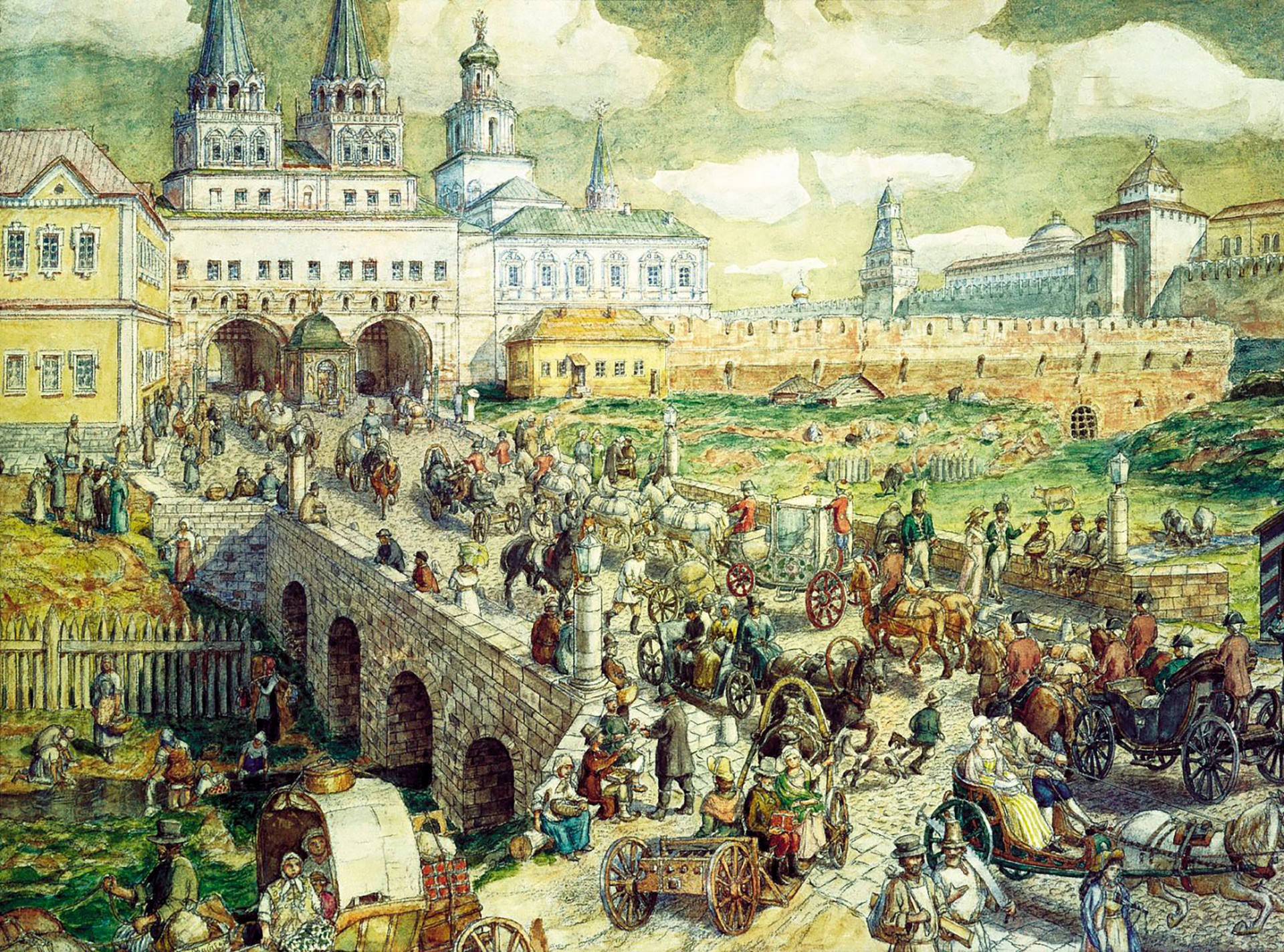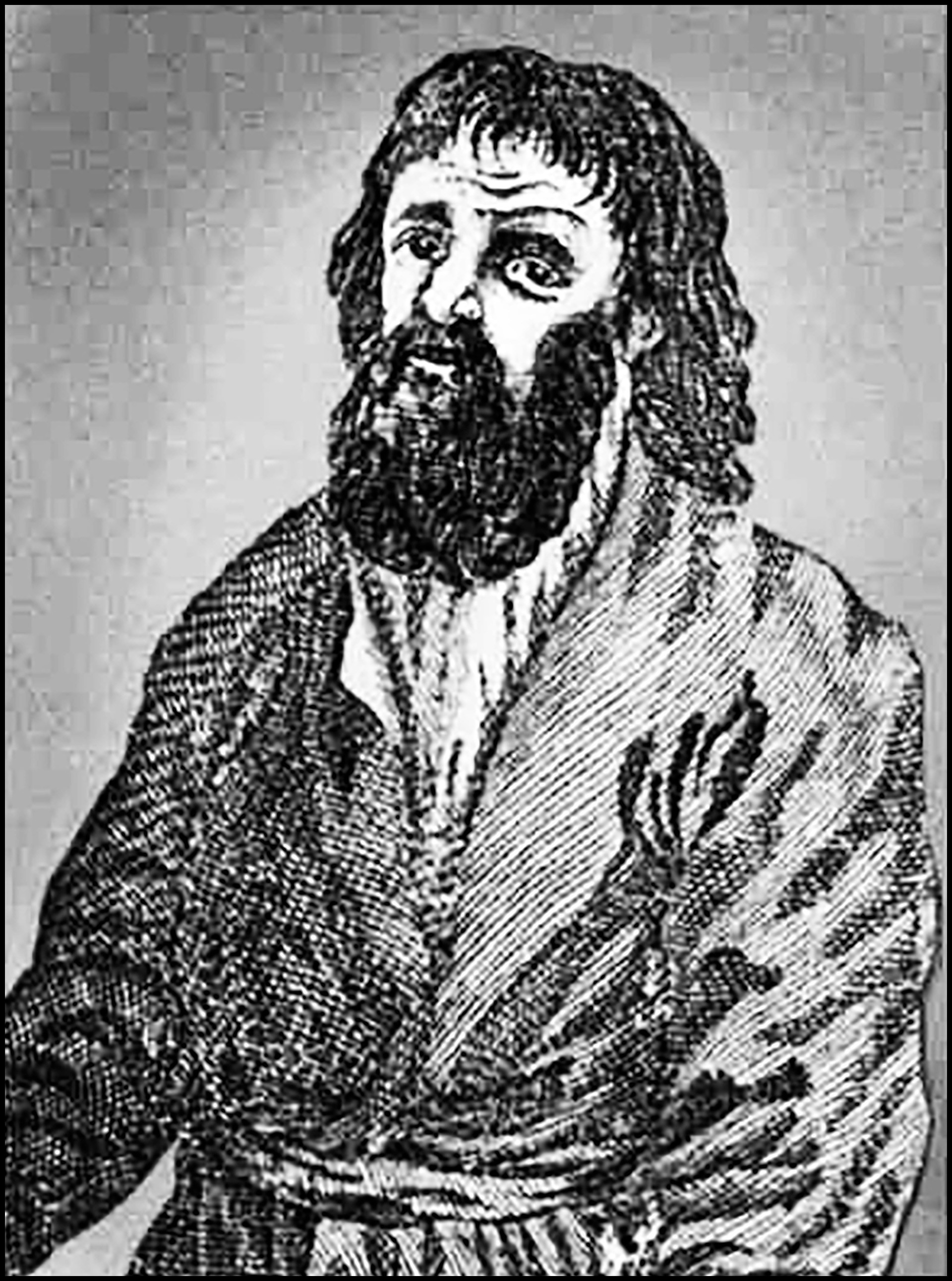Imperial Russia’s Most Wanted: The notorious thief and crime boss, Vanka Cain

Who was the criminal Vanka Cain?
Legion MediaOne morning in 1731 the prosperous Moscow merchant, Petr Filatyev, discovered that his mansion had been robbed. Missing was 18-year-old serf Ivan Osipov who had been working for him for five years.
Soon, a blunt written message from Osipov was found on the fence: “Let the devil work for you, I won’t.” That summed up Osipov’s philosophy: he preferred to steal. And he was good at it.
Restless mind

The Voskresensky bridge, XVIII century.
Apollinary Vasnetsov / WikipediaBorn in 1718 in a small village to a peasant family, Osipov went to Moscow to serve Filatyev at the age of 13. Generally, such a fate was considered a blessing, as historian Evgeniy Akelyev notes in his book on 18th century Moscow.
While in bondage and lacking any rights, serfs working for the wealthy Moscow elite usually didn’t suffer from hunger and cold as those working in factories or villages. This was not enough for Osipov, however. He wanted total freedom, to take risks and live a luxurious lifestyle.
First steps in Moscow’s criminal world
Osipov quickly made friends with Moscow’s thieves, with whom he concocted the plot to ransack and robbing Filatyev’s mansion. Several days after fleeing the crime scene, Filatyev’s serfs caught Osipov and put him in chains, but the young thief managed to escape.
Aware that there was the body of a dead soldier in Filatyev’s water well (it’s still unclear who killed the soldier, but suspicion fell on the merchant), Osipov shouted, “Slovo I
Fresh corpses every day
Osipov, now going by his nickname, “Vanka Cain,” which evokes the name of the fratricidal Biblical murderer, flourished as a criminal throughout the 1730s. He quickly became a major figure in the Moscow underworld and commanded a brutal gang of nearly 300 men.
Historian Evgeniy Anisimov supposes that Cain was an adrenaline junky. “How else could you explain some of his adventures, especially when there was no profit motive?”
Those adventures were often cruel jokes. For example, Cain was reported to leave a merchant’s servant with his pants off in the middle of a snowy field outside of Moscow, or another time when he smeared his victim with tar.
Early 18th century Moscow was a `paradise’ for criminals, and each day the fresh corpses of the murdered were found in city streets, and no fences or walls could stop the thieves. Cain and his gang thrived for a decade, but then times changed in the 1740s when the authorities tired of the chaos and launched a crackdown. Prescient enough to see the changing winds of fortune, Cain suddenly changed sides.
A double life

A portrait of Vanka Cain.
WikipediaOn Dec. 28, 1741, Cain went to the Moscow police and wrote a confession. His message was clear: yes, I’m a thief but I repent of my sins and I want to serve the state by informing on other criminals and helping to find and punish them.
The authorities believed Cain, and he became a police informer. At first, it seemed to be a great success for justice: the police were detaining dozens of thieves each day thanks to Cain’s information. He made himself indispensable and began an outstanding detective career, dedicating all his energy to catching former friends and comrades.
In fact, however, Cain secretly remained a criminal, but now he was wielding the force of the state. Cain was mainly helping to arrest minor thugs or his personal enemies, letting the big fish escape. In addition, he was extorting money from other criminals or law-abiding citizens, threatening them with the possibility of prison if they didn’t pay him protection money.
Downfall
For seven years, Cain’s empire of treachery,
By 1749, however, complaints about Cain reached the ears of Empress Elizabeth in St. Petersburg. Concerned with the situation in Moscow, she sent her close advisor, General Alexey Tatishchev, to investigate.
As a man known to be incorruptible and independent from the Moscow elite, Tatishchev took aim at Cain, and it quickly became evident that the famous police informer was in fact still a criminal.
Cain was arrested and tortured him. After confessing his abuse of power,
If using any of Russia Beyond's content, partly or in full, always provide an active hyperlink to the original material.
Subscribe
to our newsletter!
Get the week's best stories straight to your inbox